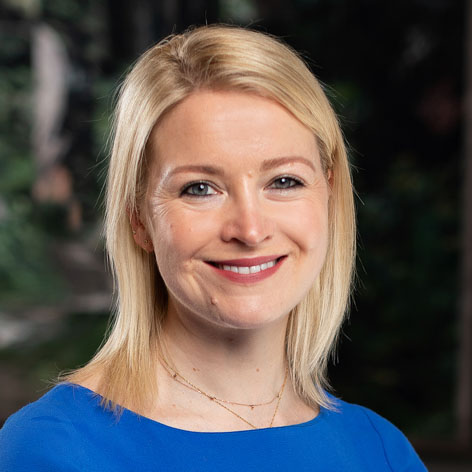Hughes v Pritchard: does the doctor always know best?
21 April 2022On 24 March 2022, judgment was handed down by the Court of Appeal in the will dispute case of Hughes v Pritchard and others [2022] EWCA Civ 386, decisively overturning what had widely been seen as a surprising decision in the High Court regarding testamentary capacity.
The case turned on the weight to be given to the drafting solicitor’s evidence, relative to a GP’s re-assessment of a testator’s testamentary capacity performed with hindsight in the face of a challenge to a will. It involved a re-examination of the test in Banks v Goodfellow and the Golden Rule, casting doubt on the value of medical evidence at trial where experienced solicitors have been present throughout the drafting process and have kept a contextually-detailed note of events, their impressions and assessments.
It reminds us that testamentary capacity is, in the final analysis, a legal test and has arguably re-set Banks v Goodfellow on its original path. A medical perspective fits into the assessment but is not decisive on its own; essentially, it feeds into the legal assessment but does not normally dictate it.
Procedurally, we are also reminded that the courts may not entertain new arguments where those have not been aired at trial. It was therefore held that an alternative proposition - that the deceased had capacity when giving instructions and did not need to retain the same degree of understanding at signature – could not be taken further, notwithstanding it was a valid point under the exception to Parker v Felgate.
First instance decision
The Appellant, Gareth Hughes, had been unsuccessful in the High Court in his claim for a grant of probate in relation to the 2016 will of his father, on the ground that it was invalid owing to lack of testamentary capacity at signature. He appealed against an order in favour of his sister (who, although she gave evidence, took no part in the proceedings) and the wife and sons of his late brother Elfed.
The deceased was a successful business owner and farmer on the Welsh island of Anglesey. The assets in his estate predominantly consisted of the shares in his company (though these were said to have little to no value at the date of his death), approximately £290,000 in bank accounts and significant holdings of agricultural land.
The family experienced tragedy in 2015 when Elfed, who had farmed the land owned by his father as well as his own, died by suicide. It was common ground that this exacerbated the psychiatric problems that his father had already begun to suffer at this point.
Nevertheless, his father appreciated that he might need to update his will, and he did so with the assistance of a qualified specialist solicitor in 2016.
The solicitor applied the iconic Victorian “rule in Banks v Goodfellow”, which has been affirmed as the correct test for testamentary capacity as recently as 2021 in the appeal case of Clitheroe v Bond. She had multiple meetings with the testator of which she took detailed attendance notes and which reflected her opinion that he had testamentary capacity.
As a precaution, the solicitor also sought a contemporaneous opinion from the deceased’s GP, in accordance with the so-called “Golden Rule” derived from Kenward v Adams in 1975. The GP advised that the testator had capacity, and the single joint expert (an old-age psychiatrist) instructed in the proceedings reached the same conclusion following his after-the-event review of the papers.
In concluding, notwithstanding the above, that the testator lacked capacity, the judge was influenced by the later evidence of the GP that – had he appreciated the difference between the 2016 will and a previous will made in 2005 - his conclusions as to capacity might have been different. The judge concluded that, since the drafting solicitor relied on the (now doubted) analysis of the GP in her own analysis of capacity, very little (or no) weight should be given to her evidence. Instead, he placed significant emphasis on the difference between the 2005 and 2016 wills.
The decision of the Court of Appeal
The Court of Appeal found that there was no good reason to place such limited reliance on the solicitor’s evidence and the GP’s contemporaneous assessment (supported by the consultant old-age psychiatrist at trial) as a result of the doubts subsequently cast by the GP on his own original work.
Lady Justice Asplin, giving reasons, considered - picking up dicta in Hawes v Burgess [2013] EWCA Civ 74 - that it was obvious that:
“Where the will is explicable and rational on its face, the conclusion reached by an independent lawyer who is aware of the relevant surrounding circumstances, has taken instructions for the will and produced a draft, has met with the testator, is fully aware of the requirements of the law in relation to testamentary capacity and has discussed the draft and read it over to the testator, is likely to be of considerable importance when determining whether a testator has testamentary capacity.”
This approach follows a trend in the courts to focus on what the testator said and did, rather than on expert medical evidence. This is perhaps best illustrated in a decision of the Court of New South Wales in Zorbas v Sidiropoulous in 2009 (cited by the Court of Appeal in Simon v Byford in 2014 and highlighted in Butterworths Wills, Probate and Administration Service):
“Medical evidence as to the medical condition of a deceased may of course be highly relevant [...]. However, evidence of such understanding may come from non-expert witnesses. Indeed, perhaps the most compelling evidence of understanding would be reliable evidence (for example, a tape recording) of a detailed conversation with the deceased at this time of the will displaying understanding of the deceased’s assets, the deceased’s family and the effect of the will. It is extremely unlikely that medical evidence that the deceased did not understand these things would overcome the effect of evidence of such a conversation.”
The High Court had placed emphasis on an apparent failure by the GP and solicitor to explore with the deceased the changes from the previous will, as an integral part of the assessment of capacity. The Court of Appeal disagreed that the GP’s original assessment and the solicitor’s evidence should be disregarded on that basis. This is not a requirement of the Banks v Goodfellow test. Testamentary capacity is not founded on a test of memory, and nor is a testator’s decision to deviate from a previous will plan a red-flag issue on its own. Testators are not required to give reasons or justify themselves when changing a will. Legal advisors will not necessarily have access to previous plans when assisting with a new one. Further, a presumption of this nature would sit awkwardly in situations where, for example, a testator is doing a first will or signing a new one after a life event such as marriage or (as in this case) the death of a loved one. This stance of the court will no doubt be more familiar to English practitioners, who are accustomed to the concept of testamentary freedom.
Does this case have an impact on the importance that judges will place on medical evidence?
A solicitor might well have read the High Court judgment and wondered, if a medical expert is able to look back on his own capacity assessment with the benefit of hindsight and “second guess” himself, how valuable is such an assessment in the first place? Or even, would this estate have been more efficiently administered had there been no medical assessment at all?
The decision of the Court of Appeal does not mark a turning point in judicial opinion regarding medical evidence. Rather, it continues a trend that we have been seeing in recent years, where a number of cases have cast doubt over the usefulness of medical evidence and even of the Golden Rule (see Sharp v Adam and Key v Key, to name but two).
Where the judge at first instance erred, so the Court of Appeal held, was that he chose to prefer the evidence of the GP at trial to the same GP’s contemporaneous assessment and (in particular) to the witness evidence of the conscientious drafting solicitor. Even without specialist medical knowledge, evidence from those who spoke to the testator at the time and had in mind the question of capacity is likely to be highly persuasive. It is also worth bearing in mind that medical practitioners themselves may not always have the specialist knowledge required to make an assessment of capacity that takes into account all of the relevant considerations, including the individual circumstances and afflictions of a testator (as in Gill v RSPCA).
Get in touch



